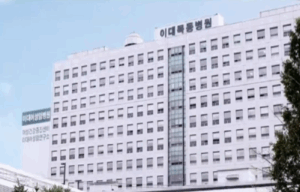Thyrotoxicosis
Disease description
Thyrotoxicosis is a pathological condition characterized by intoxication of the body with thyroid hormones due to excessive secretion or increased action of thyroid hormones. This condition can occur for various reasons, such as hyperfunction of the thyroid gland, thyroid tumors, autoimmune diseases, and other disorders of the endocrine system.
Symptoms that require seeking diagnosis and treatment
- Enlargement of the thyroid gland
- Increased heart rate (tachycardia)
- Elevated blood pressure
- Excessive sweating, feeling of heat
- Nervousness and irritability
- Weight loss despite increased appetite
- Fatigue and weakness
- Restless sleep, insomnia
- Tremor (shaking) of the hands
- Frequent urination
- Changes in the menstrual cycle (in women)
Diagnosis and treatment
Diagnosis
Diagnosis of thyrotoxicosis includes measuring the levels of thyroid hormones in the blood (triiodothyronine, thyroxine, and thyroid-stimulating hormone), ultrasound of the thyroid gland, scintigraphy, and, in some cases, fine-needle aspiration biopsy of the thyroid gland.
Treatment
Treatment of thyrotoxicosis depends on the cause and severity of the condition. It may include the use of antithyroid drugs to reduce the synthesis of thyroid hormones, as well as beta-blockers to decrease cardiac activity. Additionally, radiosurgical treatment (radioiodine therapy) may be used to destroy excess thyroid tissue. In more severe cases, surgical removal of the thyroid gland (thyroidectomy) may be required.
After thyroidectomy, hormone replacement therapy (HRT) is performed. The effectiveness of this therapy largely depends on the quality of the medications and the accuracy of dosage selection, which must be calculated by a competent physician based on diagnostic indicators. It is especially important to use high-quality medications, preferably from Europe, where higher quality raw materials and advanced manufacturing technologies are applied. Careful dosage calculation allows minimizing or completely avoiding side effects, ensuring the patient’s stable condition and high quality of life.
Innovations in world clinics
One of the innovations is the development and implementation of more precise methods for dosing radioactive iodine, which take into account the individual characteristics of the body and the clinical picture of the disease. Work is also ongoing on new methods of drug delivery, increasing treatment effectiveness and reducing patient risks.
Procedures
Top clinics
-
 Seoul, South Korea Asan Medical Center
Seoul, South Korea Asan Medical Center -
 Jerusalem, Israel Hadassah Medical Center
Jerusalem, Israel Hadassah Medical Center -
 Petah Tikva, Israel Medical Center “Rabin”
Petah Tikva, Israel Medical Center “Rabin” -
 Geneva, Switzerland Hirslanden Clinique La Colline
Geneva, Switzerland Hirslanden Clinique La Colline -
 Geneva, Switzerland Generale-Beaulieu
Geneva, Switzerland Generale-Beaulieu -
 Baden-Baden, Germany Max Grundig Clinic
Baden-Baden, Germany Max Grundig Clinic -
 Istanbul, Turkey Acibadem Altunizade
Istanbul, Turkey Acibadem Altunizade -
 Istanbul, Turkey Acıbadem Ataşehir Clinic
Istanbul, Turkey Acıbadem Ataşehir Clinic -
 Antalya, Turkey Hospital Medical Park Antalya
Antalya, Turkey Hospital Medical Park Antalya -
 Dubai, UAE NMC Healthcare
Dubai, UAE NMC Healthcare -
 Istanbul, Turkey Hospital “Memorial Şişli”
Istanbul, Turkey Hospital “Memorial Şişli” -
 Milan, Italy San Raffaele University Hospital
Milan, Italy San Raffaele University Hospital -
 Abu Dhabi, UAE Burjeel Hospital Abu Dhabi
Abu Dhabi, UAE Burjeel Hospital Abu Dhabi -
 Vienna, Austria Debling Private Clinic
Vienna, Austria Debling Private Clinic -
 Dubai, UAE Burjeel Hospital
Dubai, UAE Burjeel Hospital -
 Heidelberg, Germany Heidelberg University Hospital
Heidelberg, Germany Heidelberg University Hospital -
 Hamburg, Germany Asklepios Nord Heidberg
Hamburg, Germany Asklepios Nord Heidberg -
 Winterthur, Switzerland Clinic "Lindberg"
Winterthur, Switzerland Clinic "Lindberg" -
 Istanbul, Turkey “Memorial Bahçelievler” Clinic
Istanbul, Turkey “Memorial Bahçelievler” Clinic -
 Incheon, South Korea Gil Medical Center at Gachon University
Incheon, South Korea Gil Medical Center at Gachon University -
 Lausanne, Switzerland Clinique Montchoisy
Lausanne, Switzerland Clinique Montchoisy -
 Nyon, Switzerland Clinique Genolier
Nyon, Switzerland Clinique Genolier -
 Istanbul, Turkey “Memorial Ataşehir” Clinic
Istanbul, Turkey “Memorial Ataşehir” Clinic -
 Antalya, Turkey Memorial Antalya Hastanesi
Antalya, Turkey Memorial Antalya Hastanesi -
 Bodrum, Turkey Acibadem Bodrum Hospital
Bodrum, Turkey Acibadem Bodrum Hospital -
 Düsseldorf, German Diagnostic Center "Radprax"
Düsseldorf, German Diagnostic Center "Radprax" -
 Barcelona, Spain QuironSalud Barcelona Hospital
Barcelona, Spain QuironSalud Barcelona Hospital -
 Barcelona, Spain Medical Center "Teknon"
Barcelona, Spain Medical Center "Teknon" -
 Barcelona, Spain Sant Joan de Deu Children's Hospital
Barcelona, Spain Sant Joan de Deu Children's Hospital -
 Barcelona, Spain University Hospital Barnaclinic+
Barcelona, Spain University Hospital Barnaclinic+ -
 Madrid, Spain University Clinic HM Madrid
Madrid, Spain University Clinic HM Madrid -
 Madrid, Spain University Hospital HM Monteprincipe
Madrid, Spain University Hospital HM Monteprincipe -
 Zurich, Switzerland Hirslanden Clinic
Zurich, Switzerland Hirslanden Clinic -
 Madrid, Spain Quiron Salud University Hospital
Madrid, Spain Quiron Salud University Hospital -
 Geneva, Switzerland Clinique des Grangettes
Geneva, Switzerland Clinique des Grangettes -
 Petah Tikva, Israel Schneider Children's Medical Center
Petah Tikva, Israel Schneider Children's Medical Center -
 Seoul, South Korea Samsung Medical Center
Seoul, South Korea Samsung Medical Center -
 Bursa, Turkey Doruk Nilüfer Hospital
Bursa, Turkey Doruk Nilüfer Hospital -
 Seoul, South Korea Medical Center at Ewha Womans University
Seoul, South Korea Medical Center at Ewha Womans University -
 Seoul, South Korea SNUH
Seoul, South Korea SNUH







































